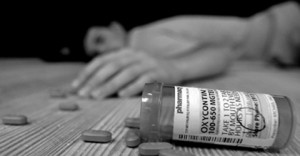
Contributed by Staff of Timberline Knolls
In 2017, the president labeled opioid abuse in the United States as a “total epidemic,” issuing an executive order which effectively created a commission particularly designed to combat opioid addiction and the current opioid crisis.
While the appointment of this commission focused upon addressing this crisis, policymakers and healthcare professionals alike are learning from communities that have been severely impacted by overdoses related to opioids, including painkillers and heroin.
Dangers of the Current Opioid Crisis
As our healthcare system continues to evolve, many are concerned about resources that will be available to help address the opioid crisis in the United States. However, on the grounds where people are being directly impacted by opioid abuse, there is a sense of hope in the power of community to spur change.
The misuse of and addiction to opioids, including prescription pain relievers, heroin, and synthetic opioids such as fentanyl, is a significant national crisis that not only affects public health but the social and economic welfare as well .
Every day, more than 130 people in the United States die after overdosing on opioids. According to the National Institute on Drug Abuse, between 26.4 and 36 million people abuse opioids worldwide, with an estimated 2.1 million people in the United States struggling with substance use disorders related to prescription opioid pain relievers [1].
 Unfortunately, drug overdose is the leading cause of accidental death in the U.S., with opioid addiction driving this epidemic. In 2015 alone, over 20,000 overdose deaths were directly related to prescription pain relievers, and almost 13,000 overdose deaths resulting from heroin [2].
Unfortunately, drug overdose is the leading cause of accidental death in the U.S., with opioid addiction driving this epidemic. In 2015 alone, over 20,000 overdose deaths were directly related to prescription pain relievers, and almost 13,000 overdose deaths resulting from heroin [2].
While there has been much debate among lawmakers on how the government should approach opioid abuse in the U.S., it is also recognized that communities themselves are key to fighting the opioid crisis.
Actions are needed on all levels to appropriately address this crisis, including treatment providers, community agencies, and health care providers, and change is beginning in communities that are coming together to help people with opioid abuse disorder find treatment and recovery.
In response to the devastating toll that opioids have taken, many communities are uniting on the public health front to draw awareness and connect individuals suffering to needed treatment.
Involvement at the Community Level
 For many individuals, the opioid epidemic hits close to home, and many people know someone who has suffered in some shape or form.
For many individuals, the opioid epidemic hits close to home, and many people know someone who has suffered in some shape or form.
While federal and state funds are necessary for prevention and treatment measures, whole community involvement can also be a powerful key in overcoming the opioid crisis.
The good news is that communities are actively finding solutions to these opioid concerns and working together across sectors to prevent opioid use, enforce interventions and provide resources to the affected.
Steps to be Focused on for the Opioid Crisis at Community Level Include [3]:
- Creation of community coalitions to work in cohesion across sectors such as work, schools, faiths, public health, law enforcement, healthcare providers and recovering population
- Development of ordinances to ensure safe drugs disposal
- Establishment of drug diversion task forces to combat prescription fraud and illegal trafficking of prescription drugs
- Training of first responders to promote use of naloxone to curb chances of overdose
- Establishing drug courts to combat opioid addiction and deviation
- Creation of innovative referral programs through law enforcement
- Disperse valuable information regarding state laws to encourage intervention
- Raising awareness regarding the respective state’s prescription drug monitoring program (PDMP) by involving local doctors and pharmacies
- Initiation of community mobilization to provide constructive tools to every community sector
If you are looking to make a difference and help bring hope to this situation that is dire for countless people, consider becoming involved on a community level. End Mass Overdose, Inc., Drug-Free Kids, National and Community Service, and Drug-Free America are but a few of the organizations that are working to fight on behalf of those who are struggling.
Involvement on a local level and with community agencies and organizations, including non-profit entities and the private sector, can be a powerful force of change that helps reduce the existing barriers to treatment.
This is a crucial time for cities and counties to rally and provide their communities with essential information and tools to combat heroin and prescription painkiller abuse aiming toward the minimization of its social and economic impact.
References:
[1]: National Institute On Drug Abuse, “Addiction to Opioids: Heroin and Prescription Drug Abuse”, https://www.drugabuse.gov/about-nida/legislative-activities/testimony-to-congress/2016/americas-addiction-to-opioids-heroin-prescription-drug-abuse Accessed 11 May 2017
[2]: American Society of Addiction Medicine, “Opioid Addiction 2016 Facts and Figures”, http://www.asam.org/docs/default-source/advocacy/opioid-addiction-disease-facts-figures.pdf Accessed 11 May 2017
[3] 9 Ways to Fight the Opioid Crisis in Your Community. (n.d.). Retrieved March 31, 2017, from https://icma.org/articles/article/9-ways-fight-opioid-crisis-your-community
Thank you to Timberline Knolls for providing this article.
Timberline Knolls is a leading residential treatment center for women and adolescent girls, ages 12 and older, with eating disorders, substance abuse, trauma, mood and co-occurring disorders. Located in suburban Chicago, residents receive excellent clinical care from a highly trained professional staff on a picturesque 43-acre wooded campus. An adult partial hospitalization program (PHP) is also available in nearby Orland Park, Ill., for women to step down or direct admit. For more information on Timberline Knolls Residential Treatment Center, call 630-755-5173. We are also on Facebook – Timberline Knolls, LinkedIn – Timberline Knolls and Twitter – @TimberlineToday.
The opinions and views of our guest contributors are shared to provide a broad perspective of addictions. These are not necessarily the views of Addiction Hope, but an effort to offer a discussion of various issues by different concerned individuals.
We at Addiction Hope understand that addictions result from multiple physical, emotional, environmental, and genetic factors. If you or a loved one are suffering from an addiction, please know that there is hope for you, and seek immediate professional help.
Published on July 30, 2019
Reviewed and Updated by Jacquelyn Ekern, MS, LPC on January 12, 2021
Published on AddictionHope.com
